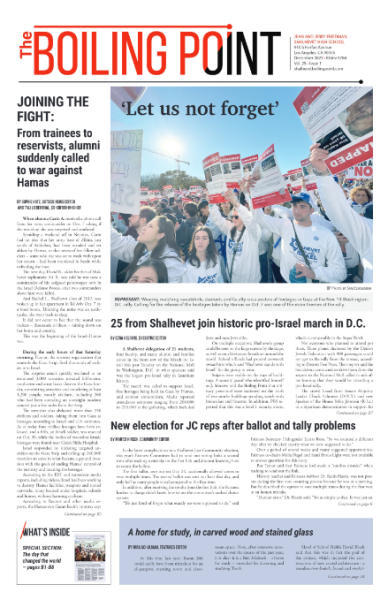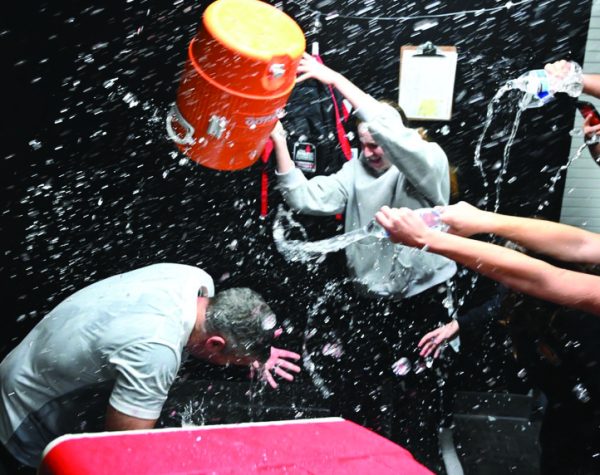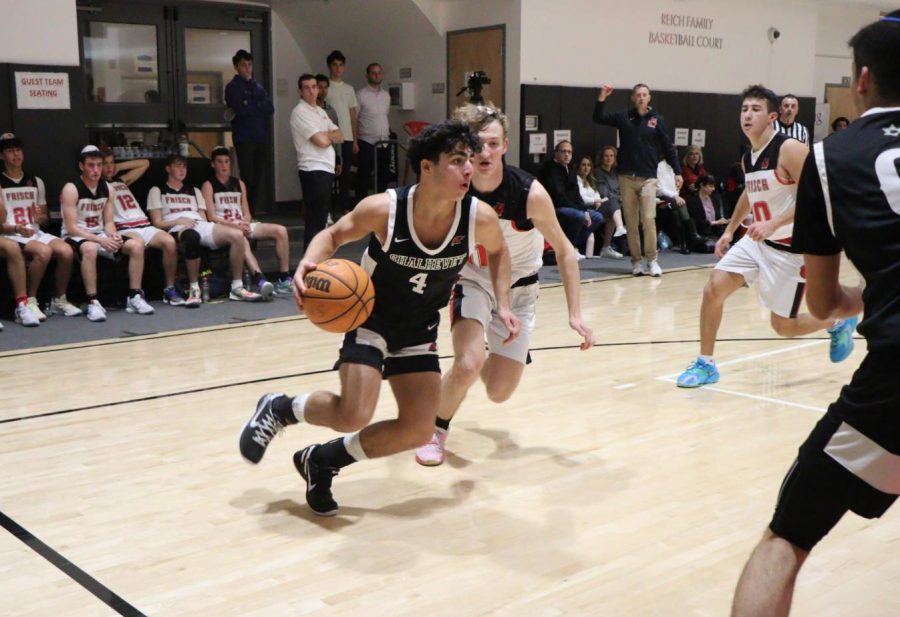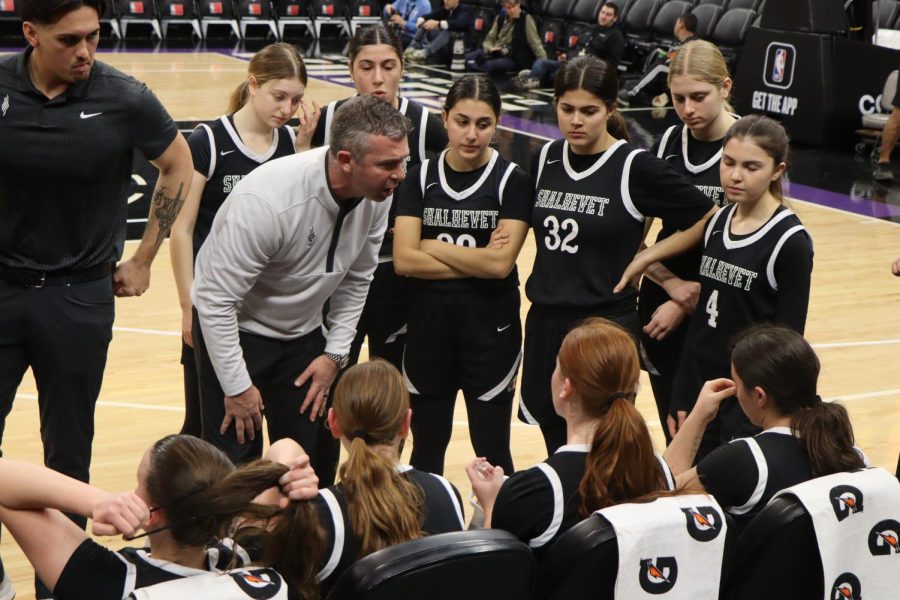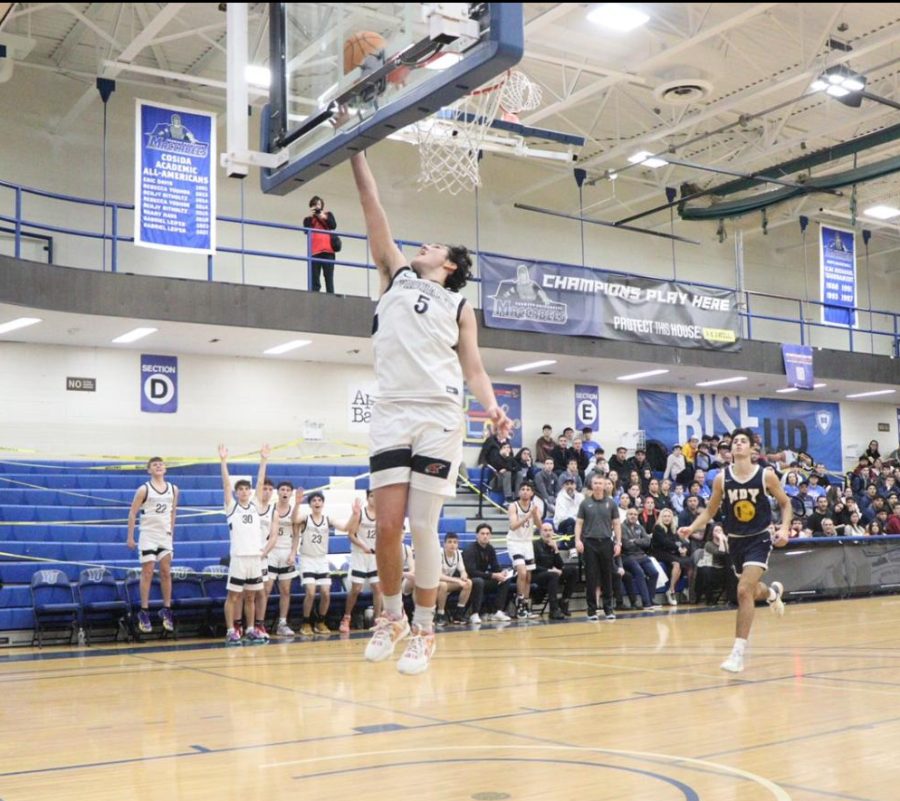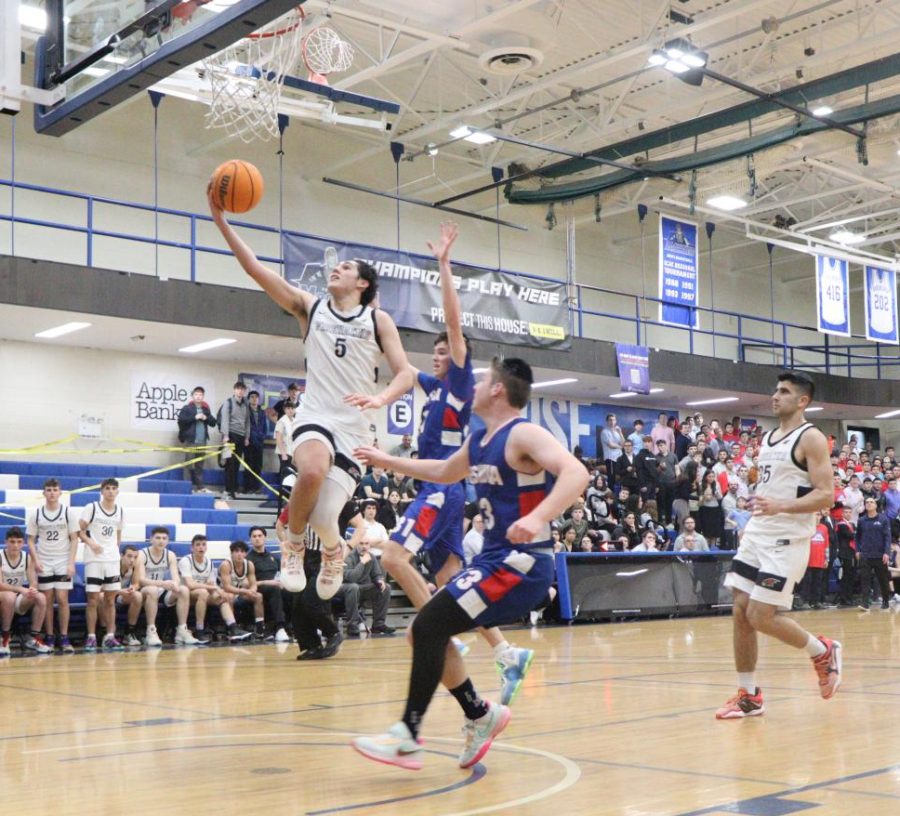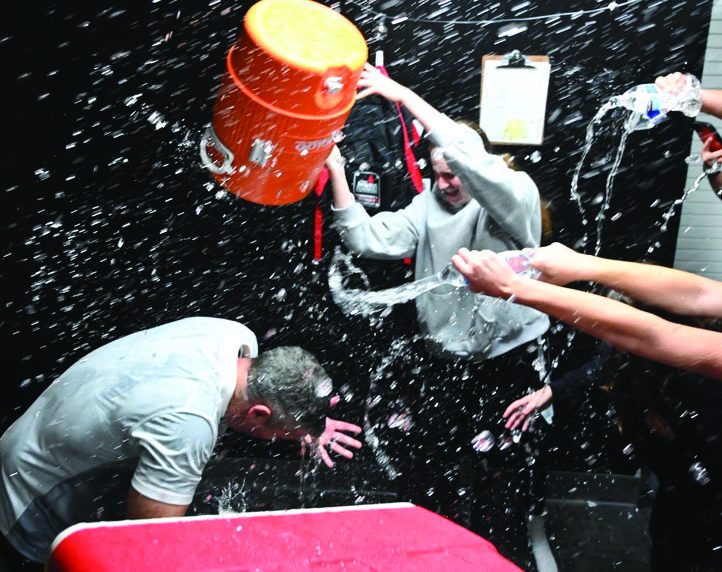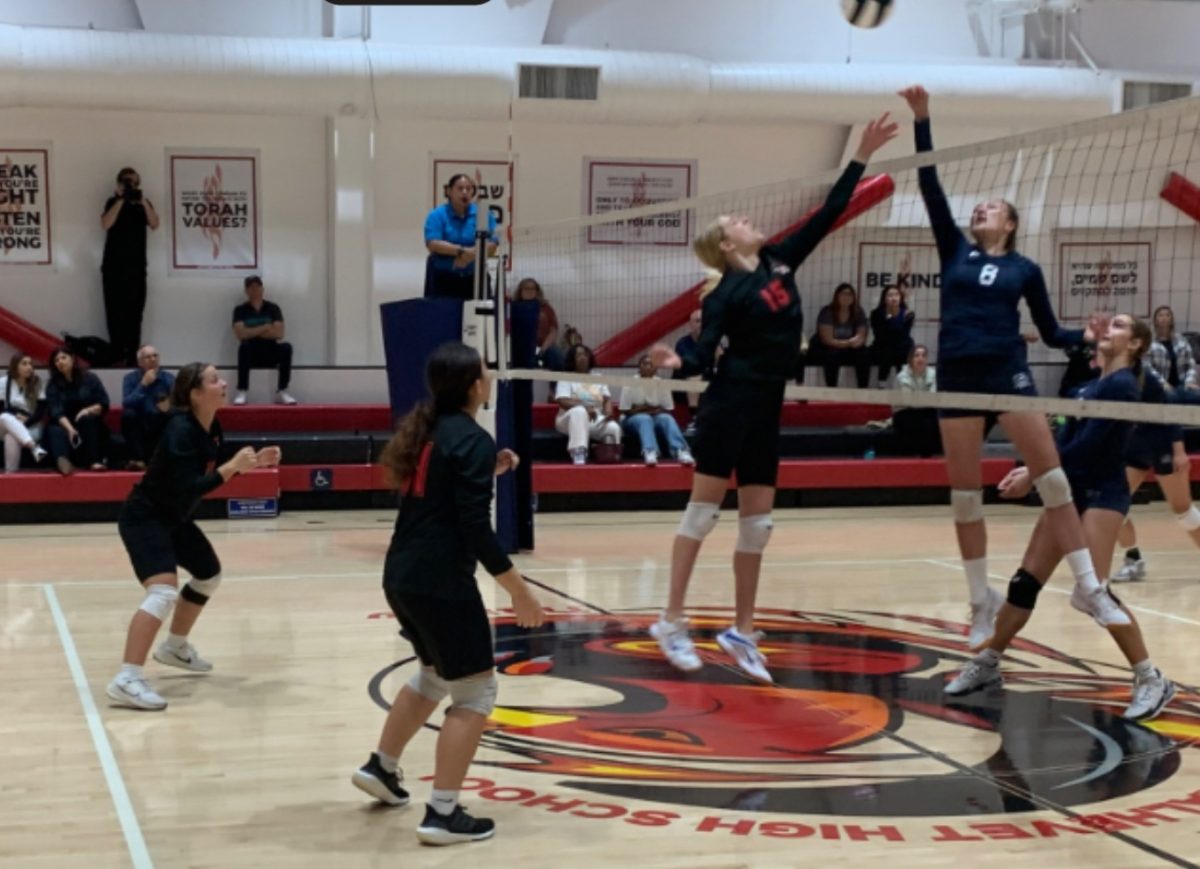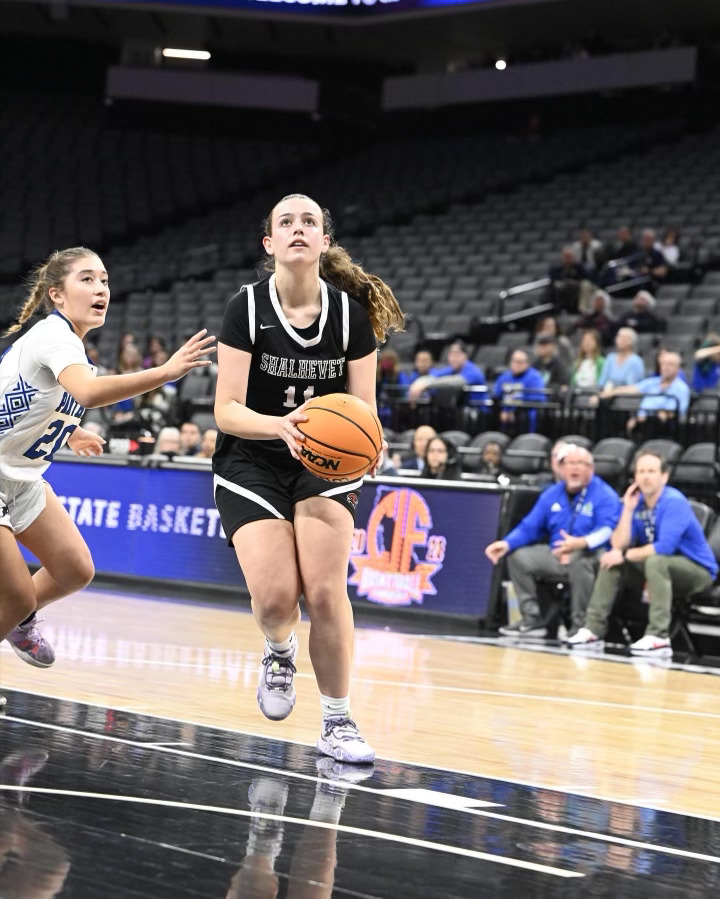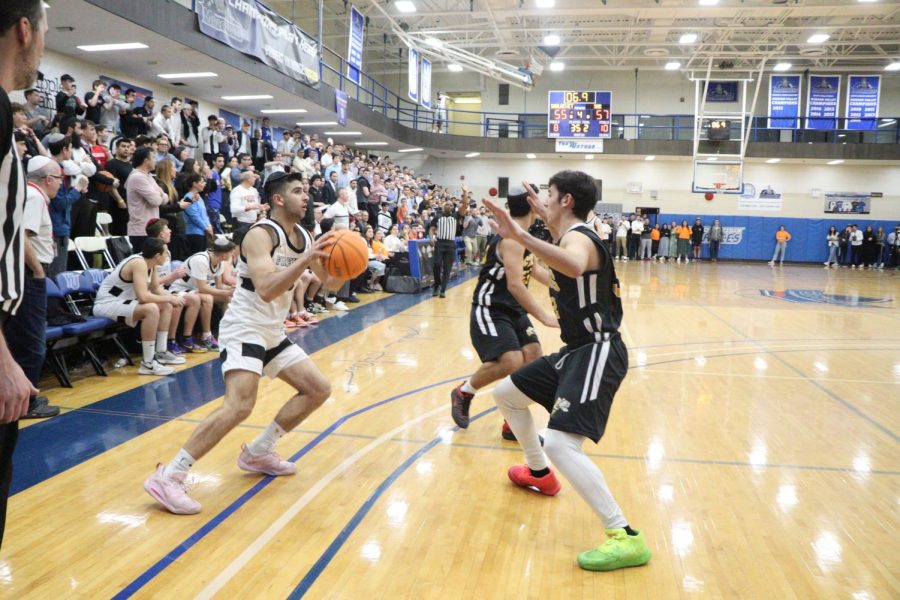On the heels of Beren Hebrew Academy’s national controversy over competing on Shabbat, Head of School Rabbi Ari Segal has instituted a new rule requiring Shalhevet’s varsity basketball team to wear kippot at all games.
The rule came into effect in time for the team’s appearance at the Red Sarachek Tournament, hosted by Yeshiva University, which started yesterday.
Wearing kippot for the first time, the team defeated Weinbaum Hebrew Academy of Boca Raton, Fla., 57-50.
“At some point, I didn’t even feel it any more,” said senior Adam Sharabi. “It didn’t make any difference to me, but I also felt like I could have fit in at YU without it on.”
Earlier this month, parents of Beren team members had sued a private tournament in its hometown of Houston when it wouldn’t move game times to avoid Shabbat —a move that garnered attention from media giants such as The New York Times, Yahoo! and ESPN. There were five stories in the New York Times alone, and on March 1, the tournament relented and the games were moved.
That day, Rabbi Segal—who was Head of School at Beren until this year—sent out an email to the Shalhevet community outlining his “struggle” over whether to require Shalhevet basketball players to cover their heads during games.
By March 5, he had made his decision, and met with team members and Coach Colin Jamerson at lunch.
“It is about a culture of placing Judaism first in a Modern Orthodox school,” he wrote in an e-mail that day. “And a large part of that is the kippot the boys wear to play.”
The new rule requires players to start the game and each quarter with kippot on their heads, but “if it falls off, it falls off,” Rabbi Segal said in an interview. That means players can wait until the next quarter to put a fallen kippah back on.
Reaction from players has been mixed. Many resisted Rabbi Segal’s push, noting that the timing of the rule leaves very little time for adjustment.
“There’s no time to get used to playing with them,” said senior and co-captain Yossi Halpert. “We should wear them before and after the games for respect, but not while playing when they can easily fall off.”
Others, including freshman Simcha Halpert, have voluntarily been wearing their kippahs all year.
“I think it makes us and the school look good when we play against other teams,” the sharpshooter said. “I don’t worry about it when I play, I just focus on the game.”
“It just feels normal,” he added.
Beren’s conflict was with the Texas Association of Private and Parochial Schools (TAPPS) and involved the Friday, March 2, and Saturday, March 3.
“The fact that they weren’t going to play on Shabbat was one of the biggest kidushei Hashem [sanctifications of God] they could have made,” said senior Josh Meisel. “They display the Modern Orthodox Jew living in America amazingly.”
TAPPS at first claimed that its bylaws did not allow them to make any schedule changes and that Beren’s athletic director had agreed to their terms when he first signed them up to for the league in 2009.
But parents filed a lawsuit stating that TAPPS was violating the team’s constitutional right to freedom of religion by not moving it.
“We firmly believed that keeping Shabbat trumps a basketball game,” said Beren senior Jesse Shkedy in an interview conducted on Facebook. Jesse plays forward on his basketball team. “We weren’t going to go against our beliefs, so we were willing to forfeit.”
Beren won the first rescheduled game but fell to Abilene Christian, 46-42, on the night of Saturday, March 3.
“It was our job to make the statement that we will stand by our beliefs and honor God’s simple request,” said senior Isaac Jacobsen, who plays small forward on the Beren team, “He does so much for all of us all the time, taking one day off from playing ball is the least we could do.”
Rabbi Segal agreed.
Although kippot can sometimes be viewed as just an external part of Judaism, he said, they also demonstrate our Jewish pride and identity.
“The national outpouring of support for the Beren team – from people of all faiths – has crystallized for us that every action we take as outwardly observant Jews has the potential to bring tremendous honor and pride to the Jewish people,” he wrote in his e-mail.
“Most often that happens on a micro-level, but every once in a while, you are placed in a position to do that on the world stage and you need to be prepared to do so.”











